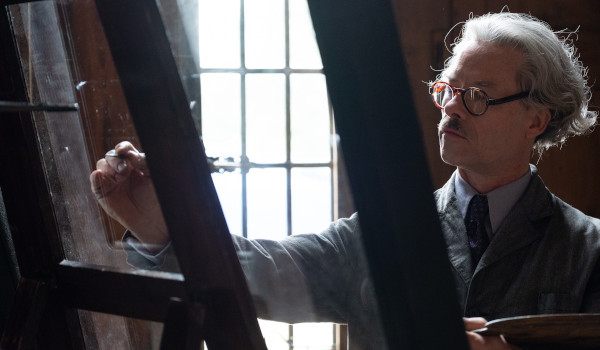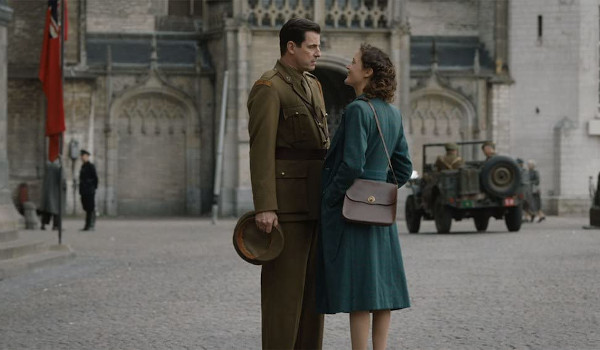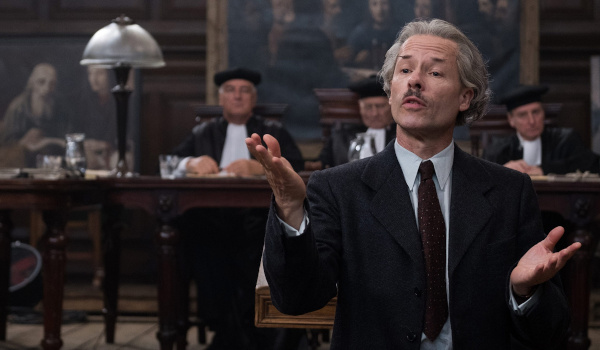- Title: The Last Vermeer
- IMDb: link

 Based on true events, and adapted from 2008’s The Man Who Made Vermeers by Jonathan Lopez, The Last Vermeer is set in 1945 and centers around Captain Joseph Piller (Claes Bang) of the Allied Forces charged with returning art stolen by the Nazis to its rightful owners. Piller’s latest investigation is of art seller Han van Meegeren (Guy Pearce) who is a suspected Nazi collaborator after tracing a sale of one of Johannes Vermeer‘s paintings back to van Meegeren. Over the course of his investigation, and during van Meegeren’s trial, Piller becomes aware of facts which lead him to doubt the suspect’s guilt.
Based on true events, and adapted from 2008’s The Man Who Made Vermeers by Jonathan Lopez, The Last Vermeer is set in 1945 and centers around Captain Joseph Piller (Claes Bang) of the Allied Forces charged with returning art stolen by the Nazis to its rightful owners. Piller’s latest investigation is of art seller Han van Meegeren (Guy Pearce) who is a suspected Nazi collaborator after tracing a sale of one of Johannes Vermeer‘s paintings back to van Meegeren. Over the course of his investigation, and during van Meegeren’s trial, Piller becomes aware of facts which lead him to doubt the suspect’s guilt.
The film’s biggest problem is how the screenplay by James McGee, Mark Fergus, and Hawk Ostby is framed. We’re given the wrong leading man. As a main character, Pillar is your typical bland police officer. The script isn’t helped by subplots spending time delving into his troubled marriage and his feelings for his assistant leading in large part to the melodramatic air of the tale. The trial’s inevitable big reveal, which takes an amazing amount of Hollywood liberties to show off facts the audience has known for an hour or more, is laughably over-the-top.
Han van Meegeren is obviously the far more interesting subject. And Pearce is certainly enjoying himself here inhabiting the character. However, by making him to be a supporting player in his own story, director Dan Friedkin‘s film allows him to remain largely a mystery with his true motivations never delved into too deeply. Had the film been centered around van Meegeren, serious choices would have been forced on both the director and his screenwriters about how to portray a man with such a checkered past who became a national folk hero. The Last Vermeer isn’t so much a bad film as a series of wasted opportunities as neither the director nor a trio of screenwriters could find a way to turn an amazing true story into an engaging and believable film.



